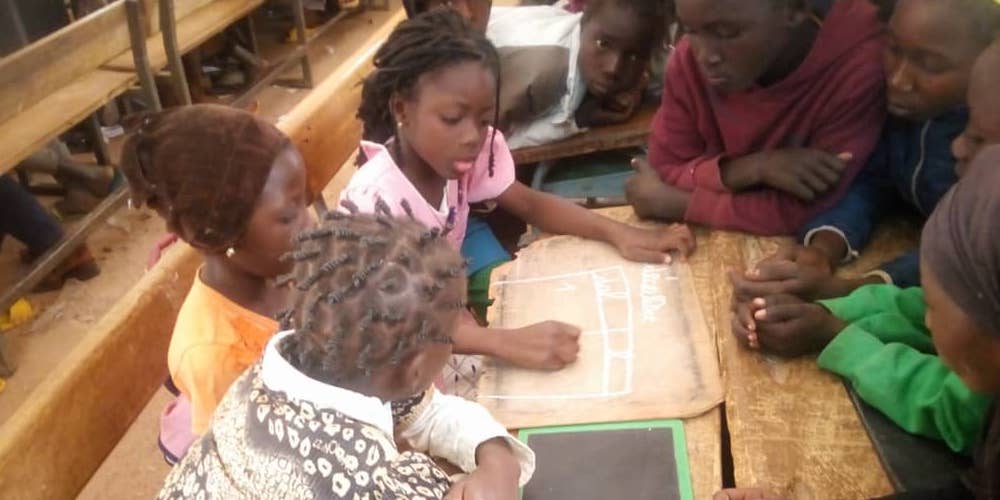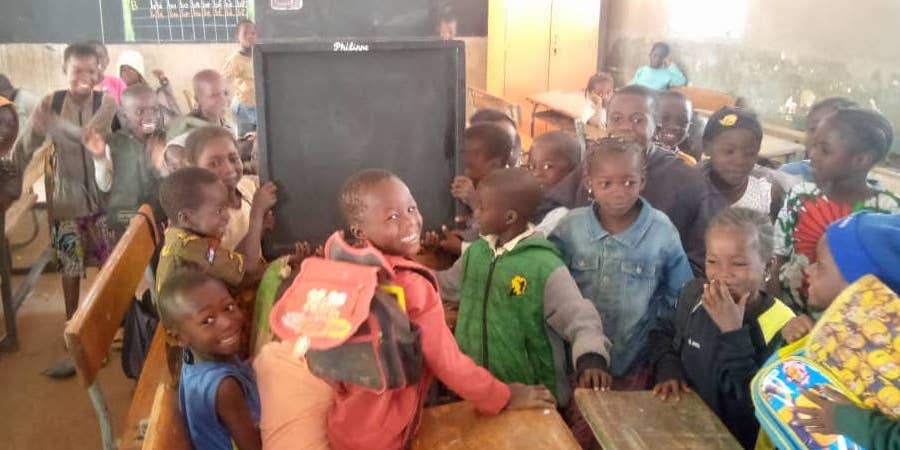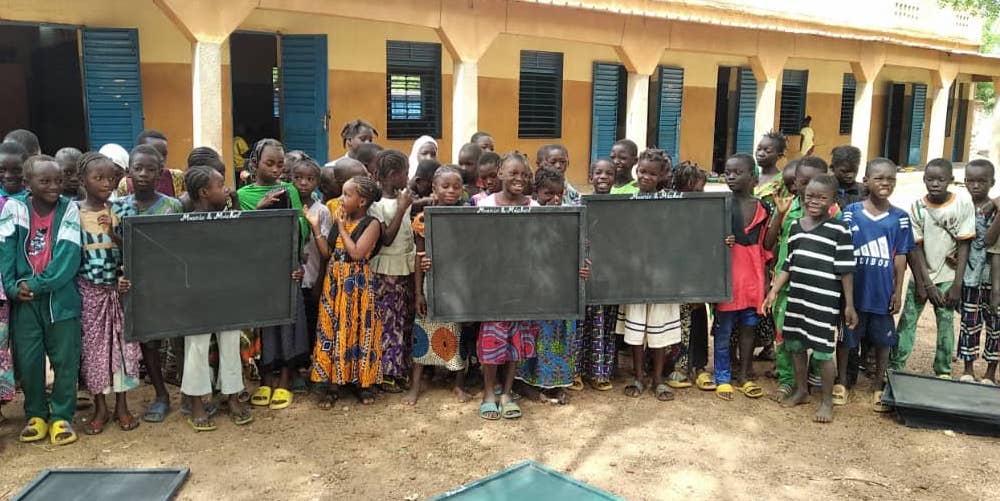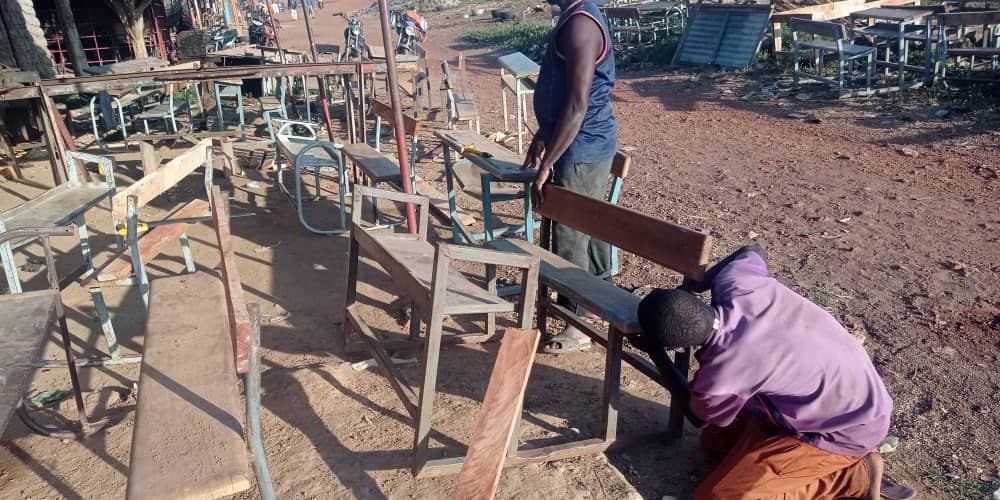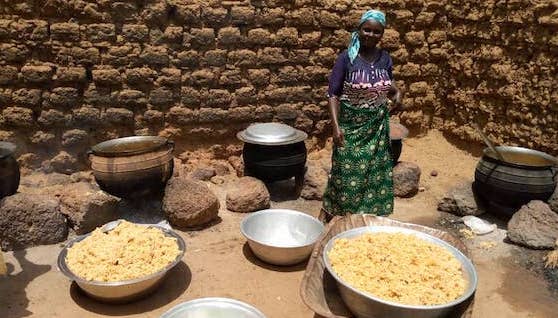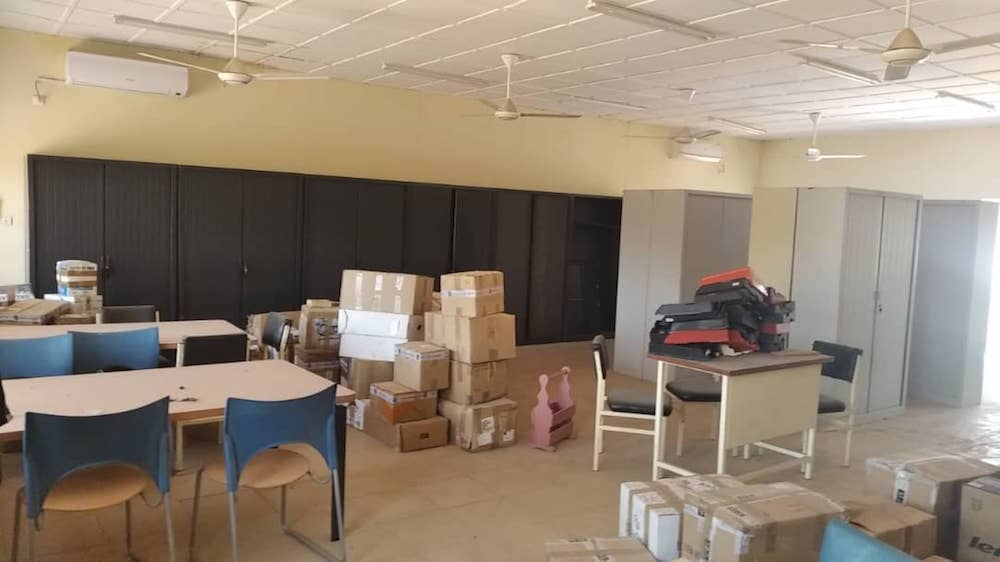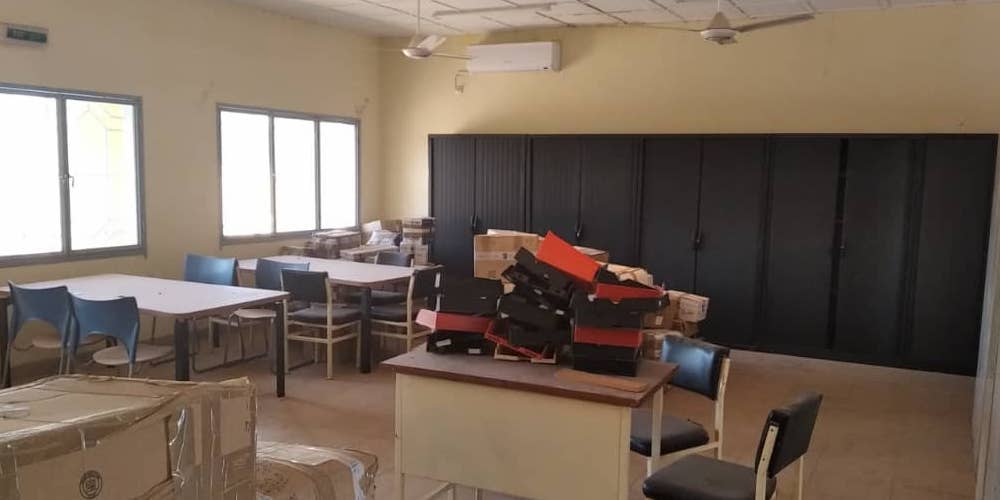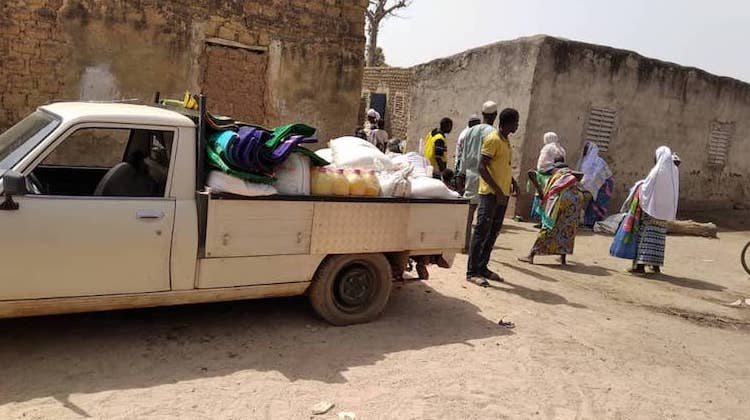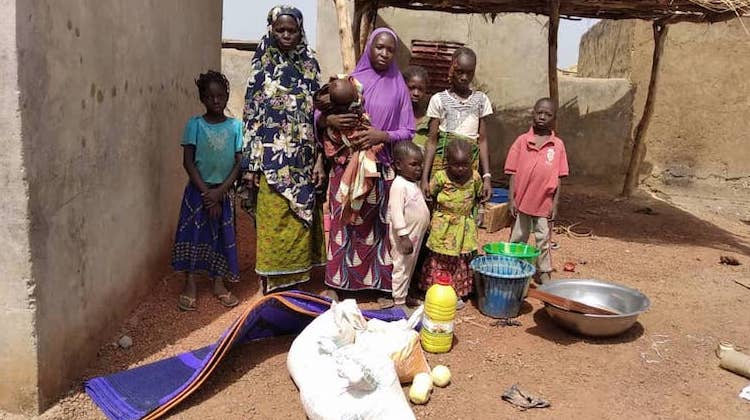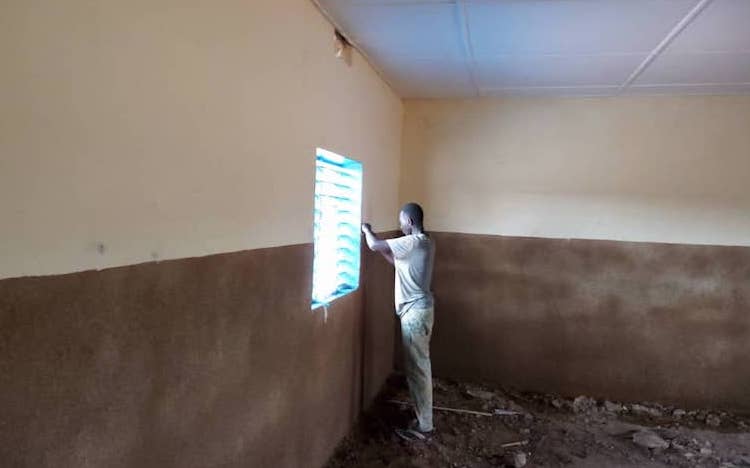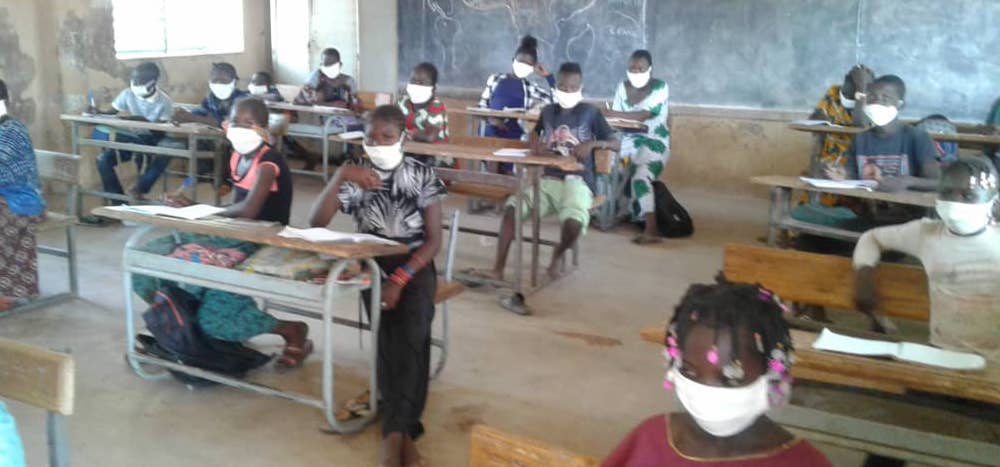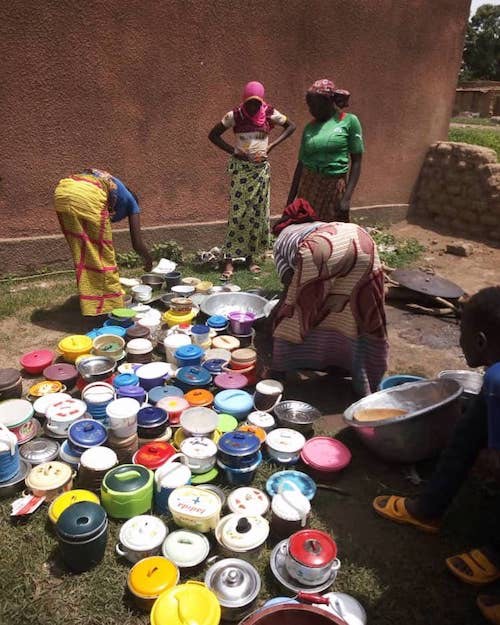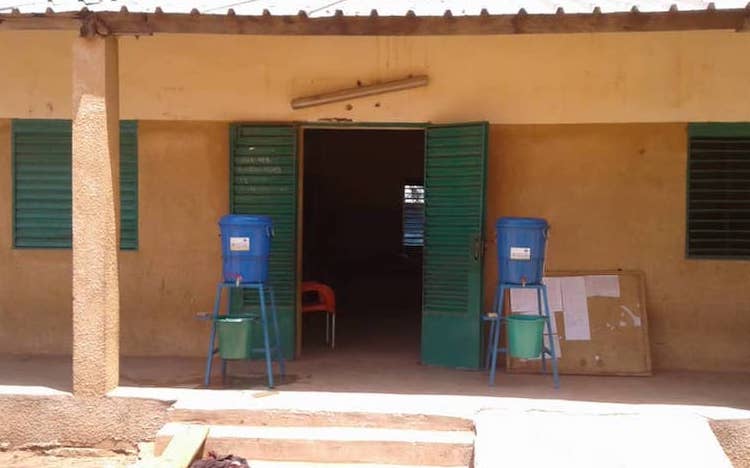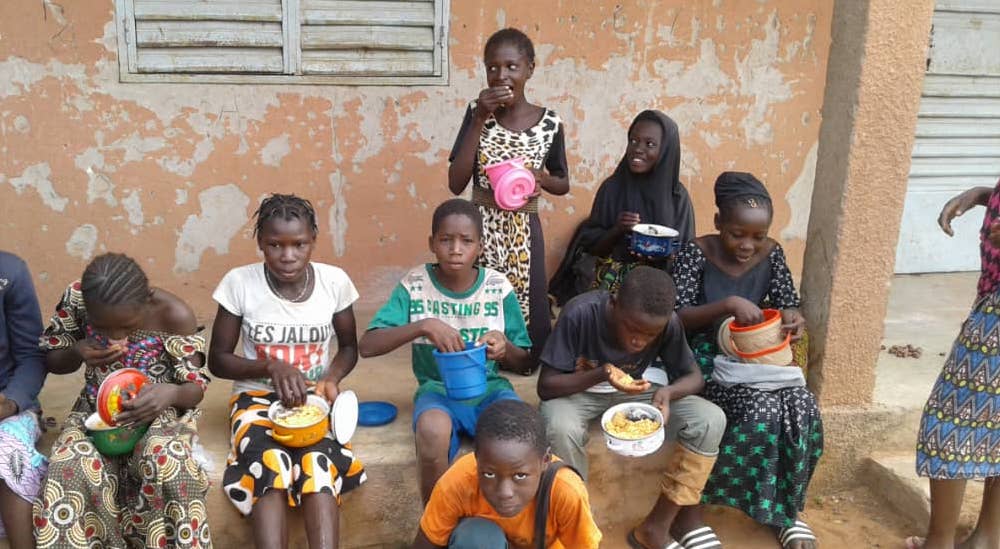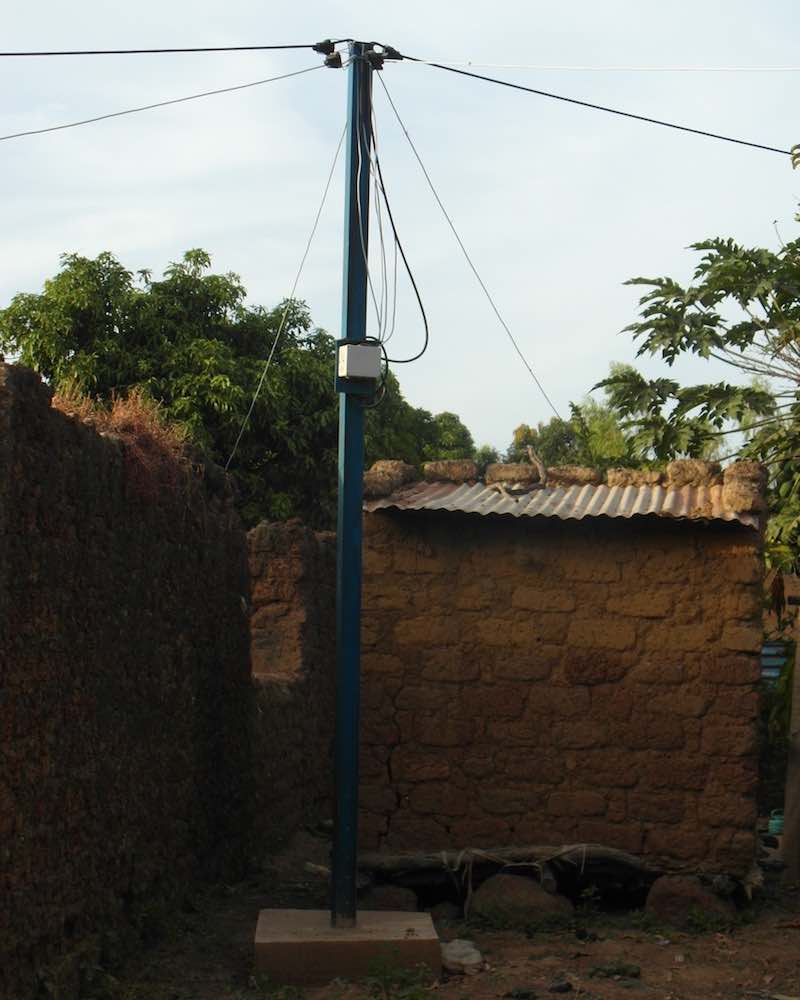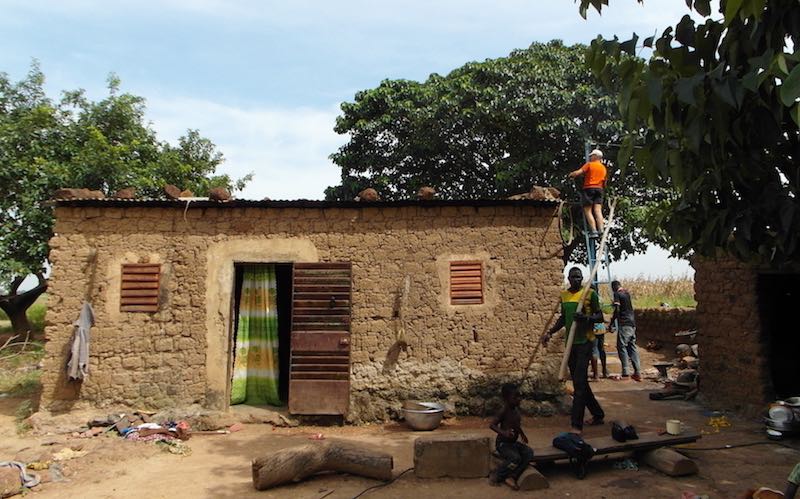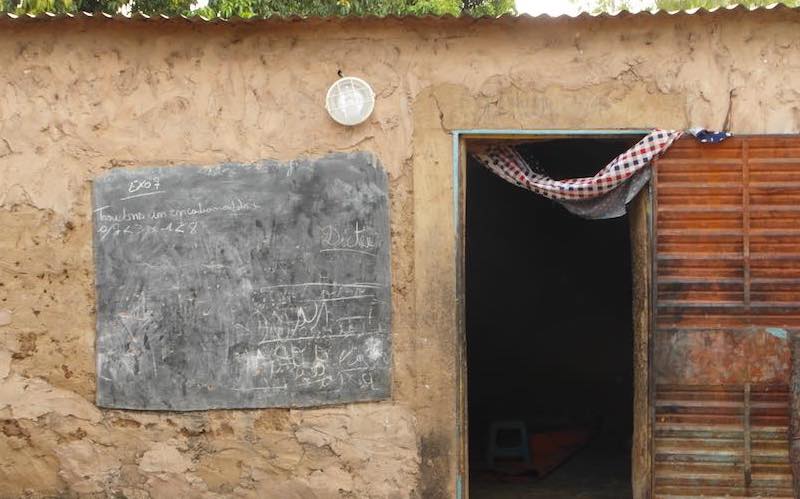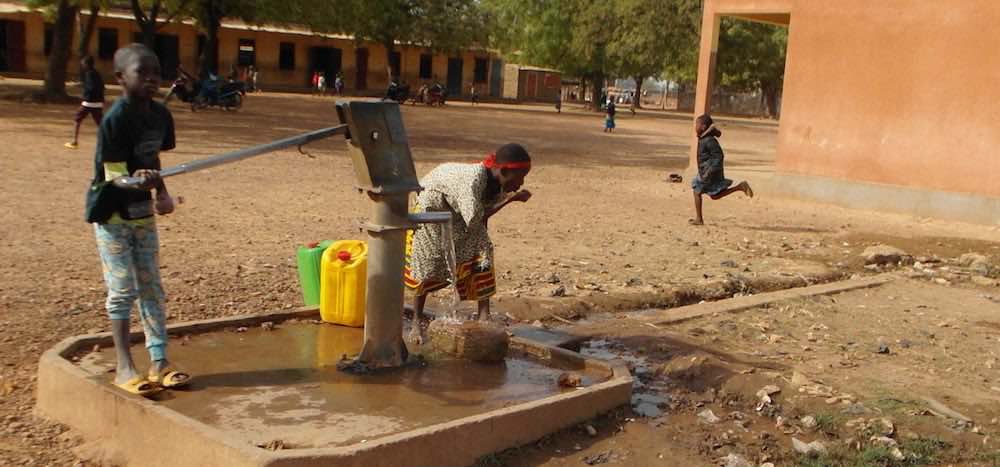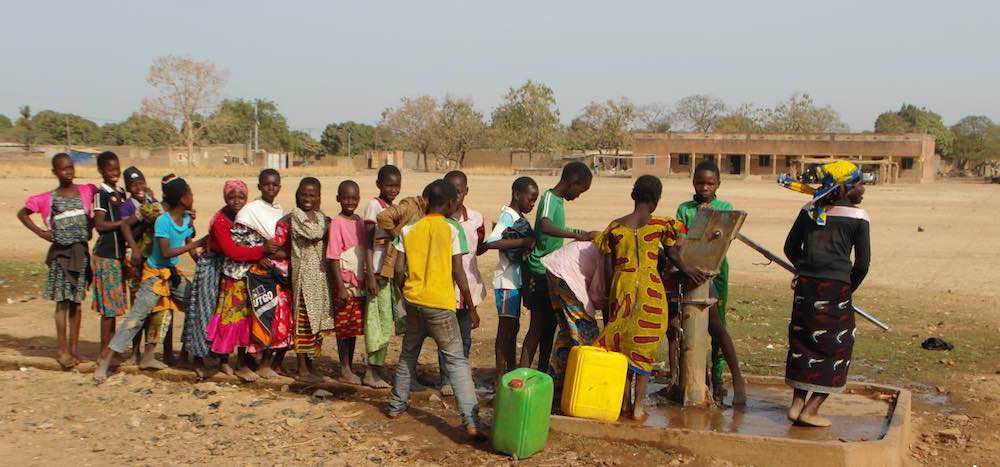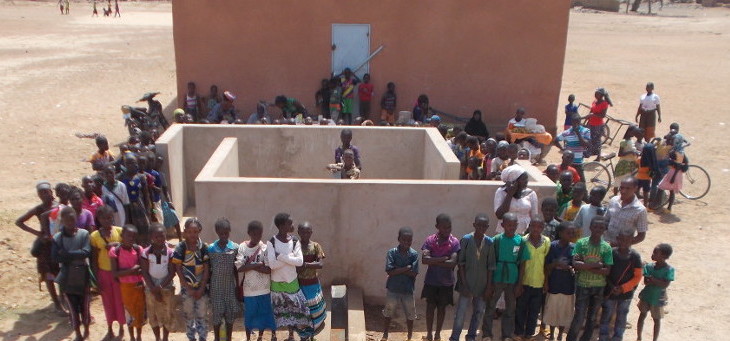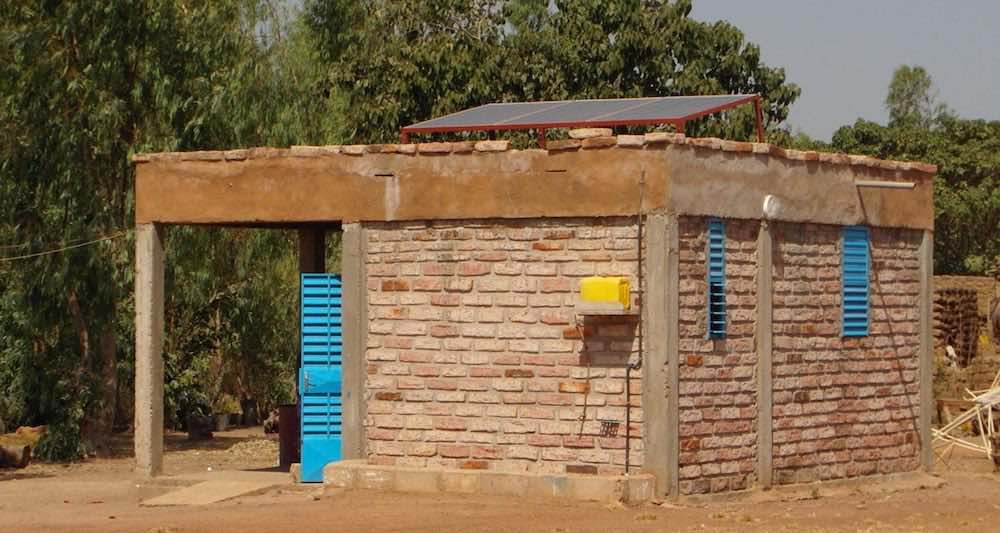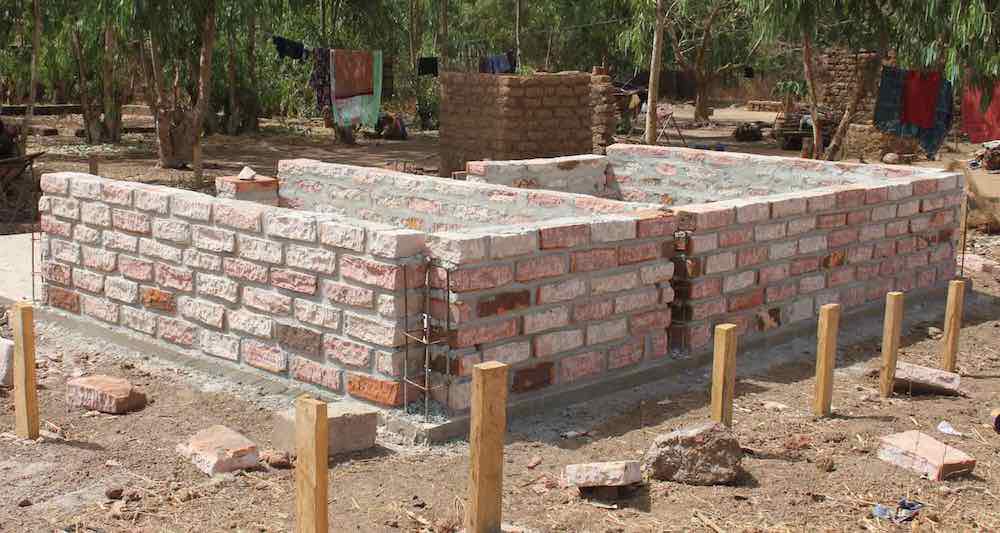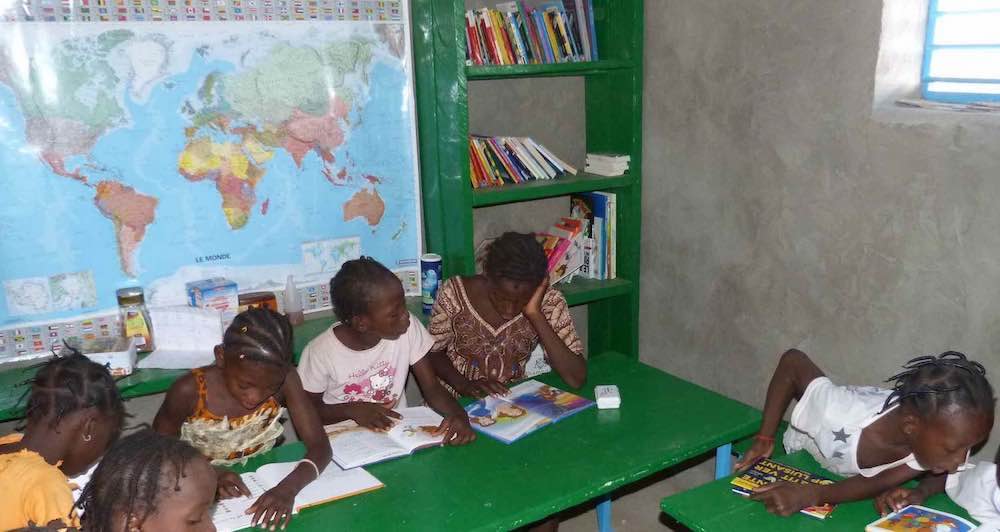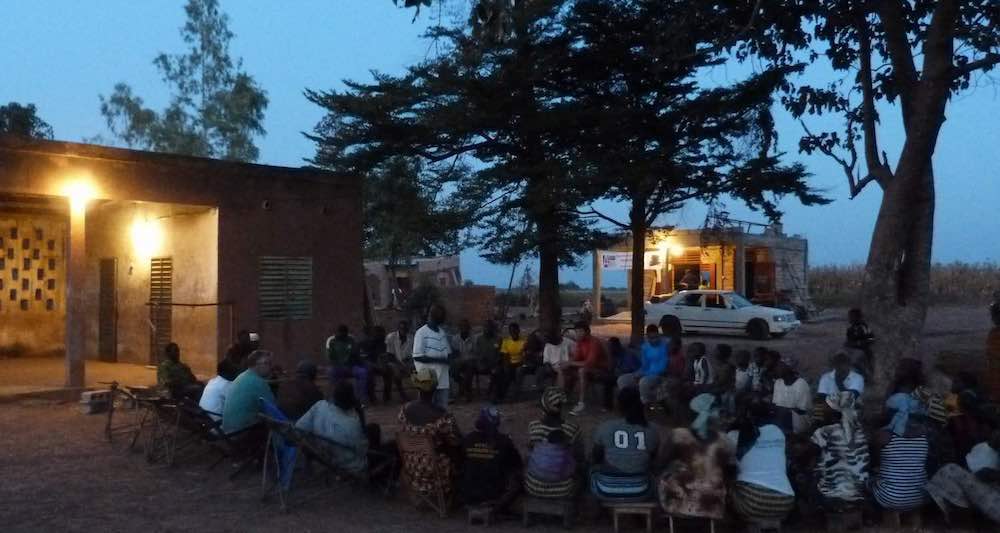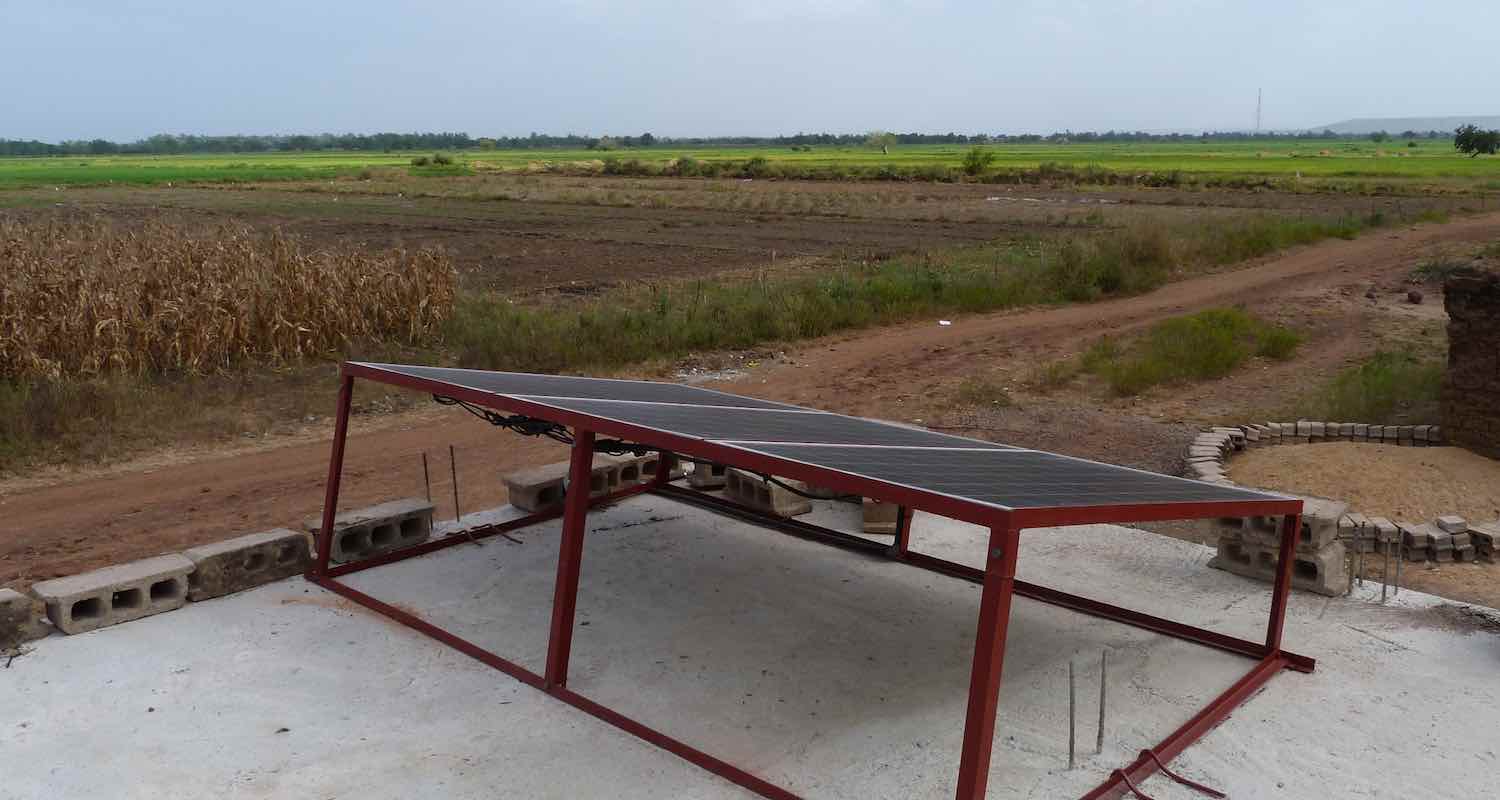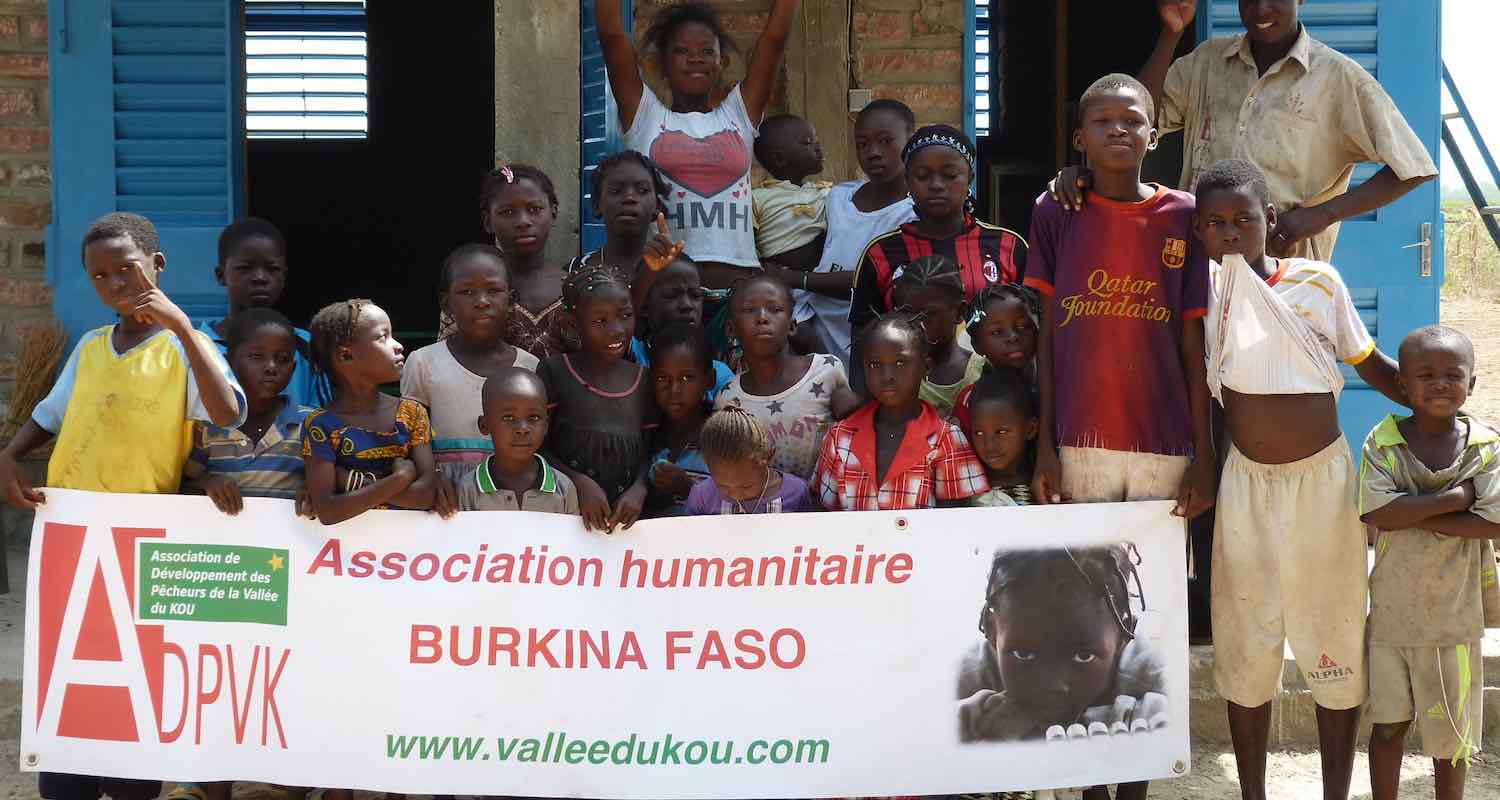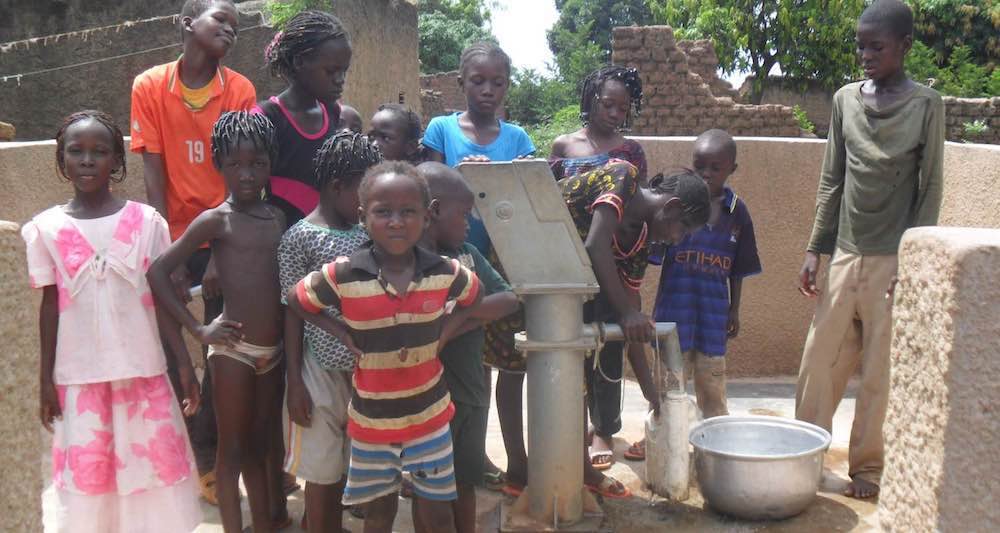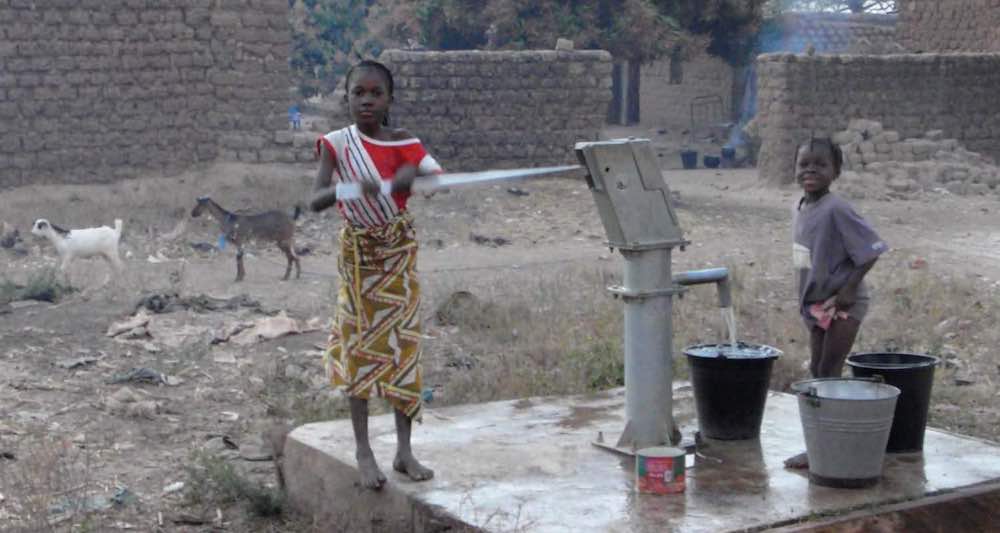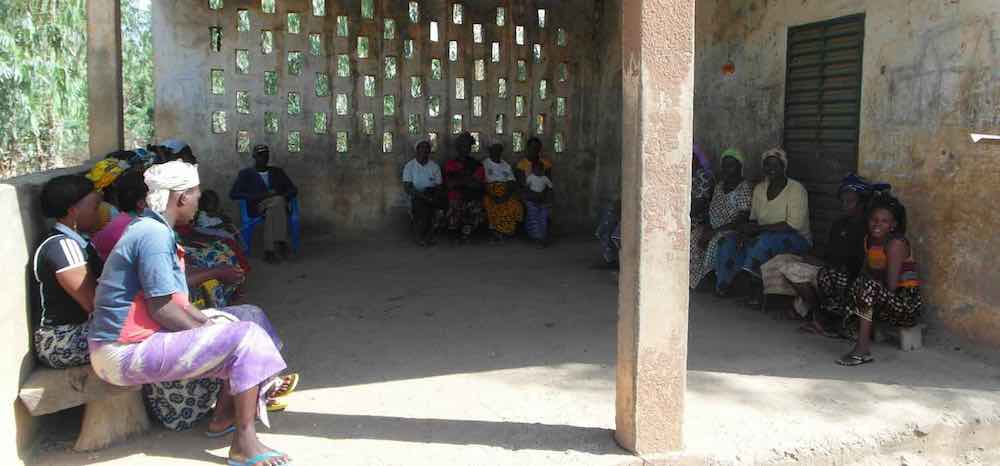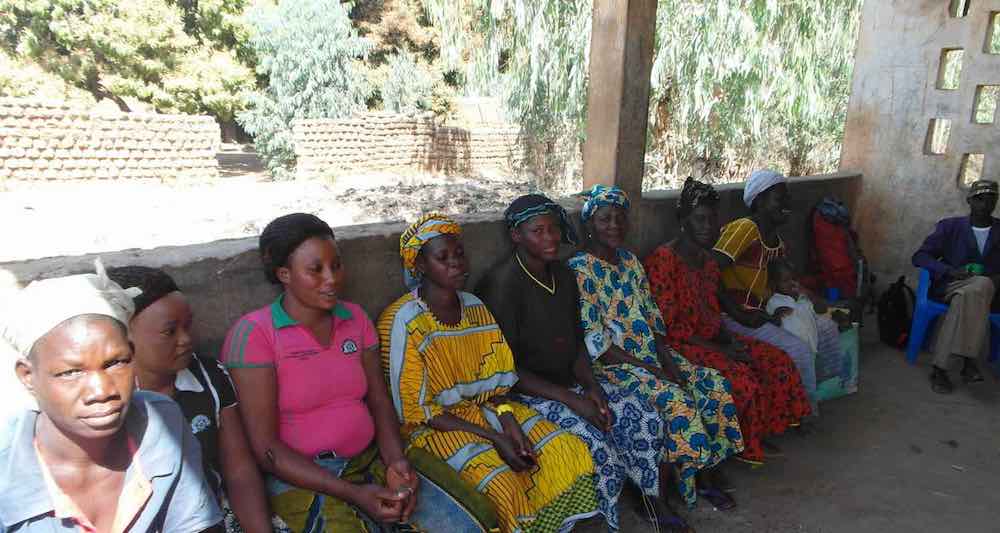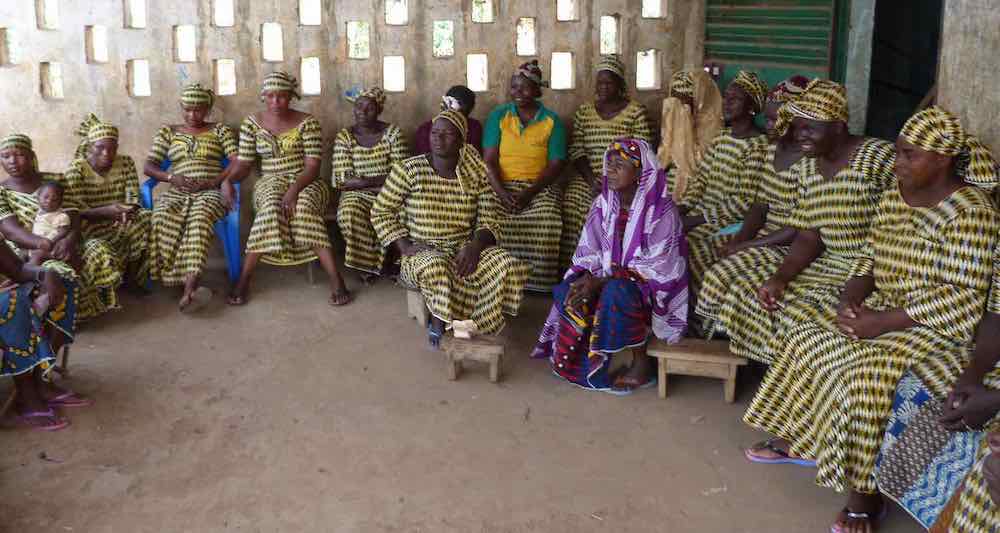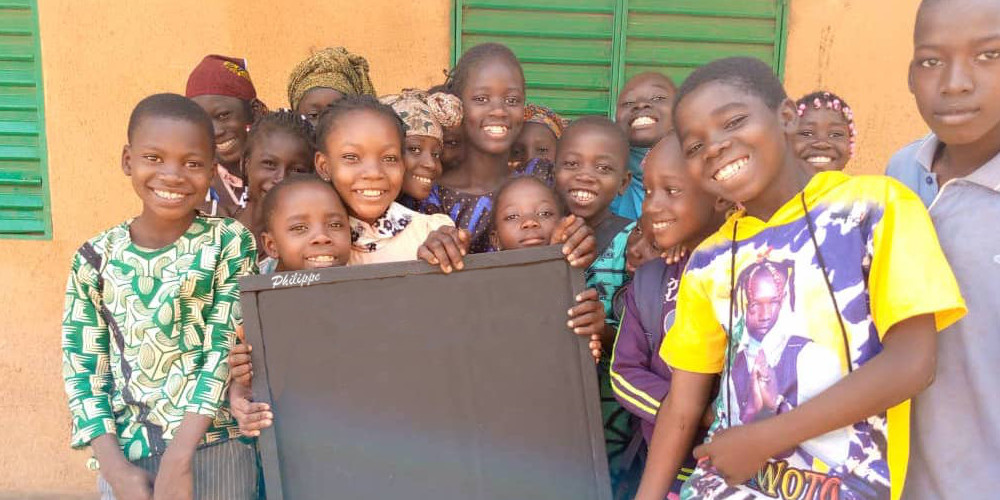
April 2023
Giant slates
The Parents' Associations (APE) of the 3 schools in the Kou valley requested support from the ADVK to obtain "giant" slates.
In order to facilitate learning in overcrowded classes, schools in Burkina Faso have adopted a new teaching method by having children work in small groups on “giant” slates.
However, the purchase of these slates is left to the responsibility of the APEs whose operating budget is only the registration fees (€3 per student per year).
Between unpaid bills and internally displaced persons who do not pay school fees, the APEs have great difficulty meeting current expenses (chalk, electricity, etc.)
Goals
Providing “giant” to the 3 primary schools in the Kou valley.
In total, the 3 schools have 1,500 students with 6 classes per school and an average of 80 students. With working groups of 7 to 8 students, you need 10 slates per class, or 180 slates in total.
The APEs of the 3 schools will finance approximately 10% of the total budget, or €200.
Actions
The manufacture of a wooden slate measuring 60 by 80 cm, painted in slate, costs €10.
Results
The 150 giant slates were distributed to the 3 schools in the Kou valley. They will help improve the learning conditions of the 1,500 students in these schools.
Project budget
Total cost 1 650 €

December 2022
Desks for school
Since 2015, Burkina Faso has been caught in a spiral of violence attributed to armed jihadist groups. This conflict has left at least 2,000 dead and nearly 2 million displaced out of a population of 21 million inhabitants. This insecurity and violence affects the entire country, impacting education with 5,700 schools closed.
Goals
Since the beginning of 2022, the town of Bama has been faced with the arrival of these displaced people from the north of the country but also from a few villages in the region near the Mali border.
These farming families were forced to leave their land, their only means of subsistence, in the face of cattle theft, looting of homes, kidnappings of loved ones and executions.
At the start of the 2022 school year, more than 500 displaced children were welcomed, complicating the organization of already overcrowded classes. These children sometimes sit on the floor facing the board. Students bring their old clothes for their classmates or chip in to pay for a pair of shoes...
With an almost bankrupt state and repeated coups d'état, the parents' association asked the ADVK to renovate 75 table-benches which will improve the material conditions of learning and teaching.
Actions
Renovate the 75 table-benches for students and 5 desks for teachers with the welder and carpenter from the town of Bama.
Results
At the beginning of December, the 75 table-benches and 5 desks were repaired and made it possible to improve learning conditions for nearly 600 students.
Project budget
Total cost 550 €

June 2022
Renovation of school latrines
Among the solutions to encourage children to go to school, few people think about toilets. However, the availability of toilets can encourage children, especially girls, to go to school and follow their education.
Goals
The lack of adequate toilets in schools threatens the education of millions of children in developing countries. In fact, they risk falling
sick due to poor hygiene and therefore do not go to school. The risks are even higher for girls.
When a girl reaches puberty, access to some privacy can be the important factor in her further education. During their period,
they must have access to a water point. Without this, they may be absent during these periods or worse, drop out of school altogether.
As the latrines of two primary schools in Bama were unusable, we were asked to rehabilitate them.
Actions
Rehabilitate the 4 latrines by building a separate space for girls and boys.
Purchase of kettles for washing hands and padlocks for healthy management of latrines.
Results
For the end of the work, a meal was offered to the 1,500 schoolchildren from the 3 primary schools.
Project budget
Total cost 885 €

April 2022
Bama Multimedia Library
The development of human capital through education has a positive influence on economic efficiency, health, nutrition and
preservation of the environment.
From this point of view, the countries of sub-Saharan Africa are handicapped with a literacy rate the
weakest in the world. It is 30% in Burkina Faso while it is 99% in France.
Goals
Même si la couverture scolaire quantitative au Burkina Faso s’est nettement améliorée, avec un taux de scolarisation brut qui est passé de 11 % en 1970
à 80 % en 2012, la qualité des ressources éducatives (humaines et matérielles) et la qualité de l’enseignement restent très faibles.
L'ADVK a été sollicité par le maire de Bama pour équiper une salle multimédia de 100 m2 en livres, manuel scolaires et matériel informatique.
Le bâtiment abritant cette salle multimédia destinée à la jeunesse de la commune a été financé par le gouvernement du Burkina Faso.
Actions
Around thirty cupboards, school furniture and 25 computer packs (CPU, screen, keyboard mouse) were donated by companies and
institutions of the Tarn department (Departmental Council, Lycée Rascol, Fondation Bon Sauveur, etc.).
3,500 books and 3,500 school textbooks were collected from schools and libraries in the Albi region.
The hardware was upgraded with the installation of the free operating system (Linux) and the purchase of 3G keys to allow users to
connect to the internet.
Transport to Bama was done by a container.
The Bama town hall and the ADVK will be in charge of the management of these installations through a management committee bringing together a municipal official,
a representative of the ADVK, a member of the teaching teams and a student representative.
Results
The container left Albi in December 2019 to arrive in Bama in February 2020. At the same time, Bama town hall was faced with the arrival of the Coronavirus and the equipment was stored in a room.
After two years punctuated by the consequences of the epidemic and preventing the association's volunteers from going to the site, the equipment was
moved to the « youth room » in January 2022.
Following the coup d'état of January 24, 2022, local authorities have
been dissolved, delaying the establishment of the management committee.
The library can only be opened to the public after the establishment of this management committee guaranteeing the good management of the library and its equipment.
Project budget
Total cost 7 000 €

February 2022
Support for displaced people from Bama
Since 2015, Burkina Faso has been caught in a spiral of violence attributed to armed jihadist groups.
This conflict left at least 2,000 dead and 1.4 million displaced out of a population of 21 million.
This insecurity and violence affects the entire Sahel region in the north of the country, directly impacting the lives of millions of people,
forced to abandon everything and flee.
Goals
The town of Bama has been facing the arrival of these displaced people from the north of the country (Loroum region) for several months. There are around 400 of them, including
a majority of children who traveled between 400 and 700 km to join family.
These farming families were forced to leave their land, their only means of subsistence, in the face of cattle theft,
looting of homes, kidnappings of loved ones and executions.
Without government assistance, these displaced people are an exorbitant burden for host families in the town of Bama.
Actions
Provision of direct support to displaced people through food aid (corn, rice, cowpeas and oil), mats and soap.
This support was financed by the ADVK through the support of its members and supporters.
Results
In collaboration with the CDVC of Bama (Dialogue and Citizen Monitoring Committee) the aid was distributed on February 5 to more than 400 people spread across around thirty families.
550 kg of rice, 1 ton of corn, 600 kg of cowpea, 190 liters of oil, 40 mats and 225 blocks of soap, enough to relieve these families for a few months.
Project budget
Total cost 2 050 €

December 2020
Renovation of a classroom
Kou Valley primary schools A, E and H have 20 classes and nearly 1,500 students.
Due to the unsanitary condition of a building, the schoolchildren are divided into 19 classes, accentuating overcrowding (on average 80 students per class).
Goals
This project aims to renovate this classroom which now serves as a store for the 2020-21 school year.
A store will be built between two existing buildings.
It is also planned to equip each class with a hand basin. Every year, around 5,000 children under the age of 5 die worldwide from diarrhea and
pneumonia due to the use of contaminated water. According to Unicef and WHO, by regular hand washing, the morbidity rate can be reduced by half.
Faced with the arrival of Covid-19 in Burkina Faso, one of the only means of protection available to the population is regular hand washing.
Actions
Repair of the building's roof, ceilings, openings and paintings. This work was carried out by craftsmen from the city of Bama.
25 hand wash basins and soaps were purchased as part of the “Educate yourself despite Covid” project.
Results
The renovation of the class was completed in August 2020. It welcomed students at the start of the school year and made it possible to reduce the number of students per class.
The store is under construction.
Project budget
Total cost 3 500 €

July 2020
Educate yourself despite Covid-19
Faced with the Coronavirus epidemic, the ADVK mobilized and responded to a special Covid-19 call for projects from the Agence Micro Projet.
The project received a grant of €1,400...
Goals
Allow 1,500 schoolchildren from Kou Valley A, E and H schools to return to school, by providing them with the material means to protect themselves against the Coronavirus.
The first barrier against the virus is regular hand washing. Without running water, it is difficult to enforce this basic hygiene rule.
The provision of artisanal hand washers makes hand washing easier. In countries where the majority of the population lives in the informal sector and where savings
is non-existent, the measures put in place by the government (prohibition of markets, restriction of circulation, closure of schools, etc.) to curb the epidemic, have
direct consequences on diet.
With the start of the lean season, the donation of food to the Association of Mother Educators in charge of the school canteen should allow
to provide 1,500 schoolchildren with one meal per day for 4 weeks.
Actions
Purchase of 25 artisanal hand washbasins for the 20 classes of the 3 schools and the offices of the educational staff from artisans and traders in the region.
Purchase of 200 blocks of soap and 30 bags of rice of 25 kg (carbohydrates), 14 bags of cowpea (African bean) of 50 kg (proteins) and 10 cans of 5 liters of oil (lipids) from traders in the commune .
Results
A donation ceremony was organized on Wednesday July 1, 2020 in the presence of the educational team, the secretary general of the town hall and the parents' associations.
Hand wash basins have been in use since this date for CM2 students taking exams and will be used for all students from the start of the 2020-21 school year.
On the occasion of the ceremony, a meal was prepared by the Association of Mother Educators in charge of the school canteen for the schoolchildren present.
Report from Radio Bama
The ADVK also offers to support schoolchildren from these 3 schools through sponsorship< /a>.
Project budget
Total cost 2 500 €

November 2018
The sun lights up the nights of the Kou valley
In June 2016, ADVK received financial support from the Micro Project Agency (AMP) for its project to light the homes of the fishing village with solar panels...
Goals
Geographically isolated, the village was unable to benefit from electrification by the network. In 2016, the Benkadi village association with the support of the ADVK built a hall
review room lit by solar panels which also power a freezer. The sale of fresh water and ice for the benefit of the village association makes it possible to raise funds for maintenance and
renewal of equipment.
After a year of operation, and an economic model in balance, the Benkadi association wishes to double the power of the photovoltaic pack to offer residents
of the village to light their homes.
The possibility of lighting homes should make it possible to improve the learning conditions of schoolchildren in a region where the sun sets around 6 p.m. Lighting should also make it possible to improve economic productivity by allowing residents to continue their activities in the evening.
Actions
The construction of an electrical network was carried out between August and September 2018 by installing 9 electrical poles built with IPN. Solar panels with a power of 750 Wp
and 400 Ah of additional batteries were installed in October by a specialized company (CB Energie).
The stay of 3 members of the association made it possible to install the electrical cables of the network
and to train two young people from the village on the technical aspects of the installation. 52 light bulbs were installed during the stay.
In order to test the installation, connections will be limited to these 52 bulbs until the rainy season (August 2019), the least favorable period in terms of sunshine.
Meetings with the office of the Benkadi association made it possible to set up a method of managing the installations and in particular the collection of connection costs and monthly subscriptions.
Results
The installation works correctly and can power the 52 bulbs.
In consultation with the Benkadi association, connecting a bulb is charged at 2,500 FCFA and the subscription has been set at 400 FCFA/month for a bulb (0.60 €).
These recipes must allow the maintenance and renewal of equipment, particularly batteries which have a limited lifespan.
After 6 months of operation, the village association in charge of managing the installations collected 120,000 FCFA for the connection of 52 bulbs and 125,000 FCFA for monthly subscriptions.
The installation worked correctly for 6 months. With the arrival of the rainy season, the cuts were made earlier and earlier.
These malfunctions were attributed to two parameters:
- – The coupling of used batteries (2 years) with new batteries, leading to a more rapid deterioration of charging capacities.
- – Some residents do not turn off the light bulbs in their homes during the day or sleep with the lights on.
In order to respond to these two issues, all 8 batteries were changed at the beginning of 2020 for a total cost of 800,000 FCFA (€1,220). Since the project is still in the development phase
test, ADVK contributed half of the financing.
A timer was also put in place to manage the supply of electricity to homes. This timer allows you to manage
the use of lighting during the day and night. In consultation with the village residents, it was decided to settle the
timer from 8:00 a.m. to 12:00 p.m. in the dry season (most favorable sunshine) and from 6:30 p.m. to 11:00 p.m. in the rainy season.
Project budget
Total cost 6 500 €

Febuary 2018
Development of the Bama school borehole
Bama primary school has 686 students divided into 6 classes. The only drinking water point nearby has been drilled a few years ago was never developed...
Goals
Development to limit the risks of pollution linked to stagnant water around the drilling and evacuation of wastewater to a phragmites sump (phyto-purification).
Actions
In collaboration with the parents' association, a mason was chosen to carry out the work. They should begin during February 2018 so that they are completed before the start of the rainy season in early May.
Results
The work was completed at the beginning of March 2018.
The development of the surroundings of the drilling makes it possible to limit pollution by avoiding stagnant water around the drilling and by treating wastewater with
a sump equipped with a phyto-purification system based on sand and reeds.
This arrangement made it possible to sustain the drinking water resource for the school children and thus avoid diseases, particularly diarrheal
caused by the consumption of contaminated water.
Project budget
Total cost 960 €

December 2017
Facilities Management
The installations set up in the fishing village of the Kou valley and in particular the drilling and the photovoltaic pack are goods with a limited lifespan requiring renewal and regular maintenance...
Goals
Facilities management must enable the maintenance and renewal of equipment. To do this, an economic model must make it possible to generate revenues enabling to ensure the sustainability of these installations, and even their development.
Actions
The borehole, the inspection room and the photovoltaic pack are goods made available to the inhabitants of the village by the ADVK. They are managed in community form by
an official association formed by the inhabitants of the village (Benkadi, Entente en Diuola).
Benkadi appointed a manager and set her remuneration at 10,000 FCFA per month (€15). The manager is in charge of selling services such as the sale of fresh water and ice,
cell phone charging.
The revenue generated by these sales must cover the salary of the manager, the maintenance of the installations and their renewal.
Results
After one year of operation, the average revenue generated by sales is 30,000 FCFA (45 €). These revenues must make it possible to remunerate the manager and ensure
maintenance of the installations as well as their renewal.
The amount necessary for the maintenance and renewal of the equipment was estimated at 33,000 FCFA (50 €) on the basis of calculated depreciation
on the lifespan of this equipment (4 years for the batteries, 8 years for the inverter, 15 years for the solar panels, 5 years for the freezer and 10 years for the human motor pump).
Battery life is the parameter that most influences the amount of depreciation. This is why the revision room was built with a concrete roof capable of supporting 30 cm of topsoil.
allowing the temperature in the technical room to be lowered. Indeed, the ambient temperature of the room where the batteries are stored has a strong influence on their lifespan (7 to 10 years at 20°C, 4 years at 30°C and 2 years at 40°C)
Project budget
Total cost 0 €
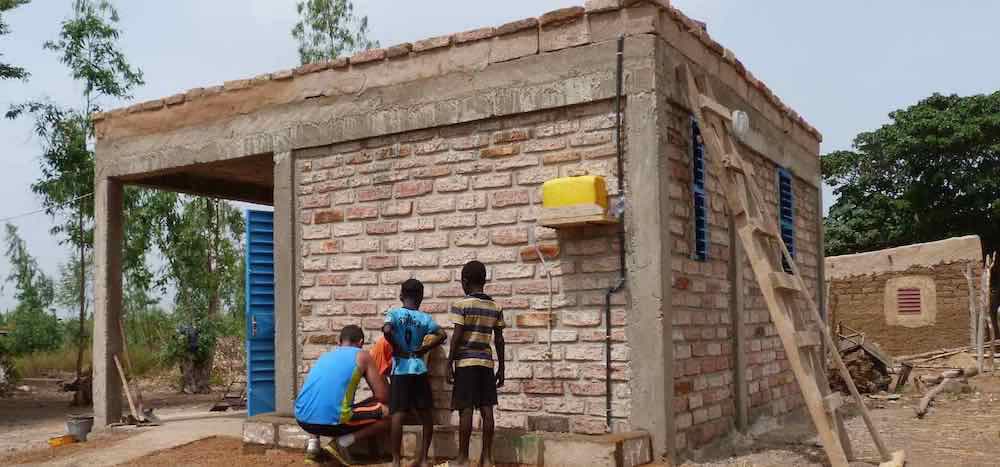
June 2016
Construction of a revision room
The installations set up in the fishing village of the Kou valley and in particular the drilling and the photovoltaic pack are goods with a limited lifespan requiring renewal and regular maintenance...
Goals
This room intended for the children of the village must have photovoltaic panels to illuminate the center of the village. Like 95% of villages in rural areas in Burkina Faso, the fishing village does not benefit from electrification. The only way to light until October 2016 was the kerosene lamp.
Actions
Construction of the review room began in early 2016 and was completed in October 2016.
One of the specific features of this construction is its reinforced concrete roof capable of supporting the load of 20 cm of topsoil, making it possible to lower the temperature in the revision room by 7 to 8°C and
the technical room in order to preserve the technical equipment and thus extend its lifespan.
An association was created (Ben kadi) to manage the installations. The sale of ice, fresh water,
mobile charging must generate revenue allowing the maintenance and renewal of the installations.
Results
Since 2016, the sale of fresh water, bissap (hibiscus juice), mobile phone charging has generated an average turnover of 30,000 FCFA/month. Half of This sum is used to compensate the seller and the balance is saved in a bank account for the renewal of the installations (batteries in particular).
Project budget
Total cost 11 300 €

June 2015
Development of the village borehole
Limited access to drinking water is a source of diseases, particularly diarrheal diseases. The lack of clean water weakens the economy and results in loss of income, largely due to the debilitating effects of water-related diseases. In addition, the time and energy wasted fetching water over long distances, a task falling mainly on women and girls, deprive the latter...
Goals
Access to groundwater by a human-powered pump and a drilled well makes it possible to reach the deep water table and to have a drinking and lasting water point near the village.
Actions
The drilling was carried out in 2014 and made it possible to significantly improve the general health of the inhabitants of the camp and more particularly of the children.
The water from the borehole captured in the water table at a depth of 45 meters is brought to the surface using an India MK II type human-powered pump.
The development of the surroundings of the drilling makes it possible to limit pollution by preventing water from stagnating around the drilling and by treating the wastewater with a sump equipped with a system
phyto-purification based on sand and reeds.
Results
Project budget
Total cost 10 000 €

February 2015
School supplies
The children of the fishing village are educated at the Bama primary school located 2 km from the village. The 6 classes of primary school have more than 100 students per class....
Goals
Children are enrolled in school late due to lack of space and financial means for their registration and school supplies.
Actions
The ADVK handed out school supplies in the presence of the school director, representatives of parents and CM 2 students.
The supplies, 100 pens,
100 boxes of colored pencils, a football and a hundred children's books will serve as a reward during the evaluations.
Contacts were made with the school directors to
try to set up exchanges with a school in Albi.
Results
Project budget
Total cost 250 €

February 2015
Microcredit
In Burkina Faso, the poorest populations do not have access to financing to develop economic activities.
These commercial or agricultural activities of modest size make it possible to generate income to meet the needs of the family...
Goals
Make funds available to the women's association "Mouniou" and the men's association "Koba" in order to finance economic activities.
Actions
In February 2015, the president of the ADVK donated the sum of 100,000 FCFA (€150) to the women's association. This amount loaned without interest to the association will make it possible to
finance small activities, such as the resale of smoked or dried fish. The terms of the loan (duration, rate, amount) will be set by the association.
As for the women's association,
the sum of 100,000 FCFA was given to the men's association. This money will be used to finance, for example, fishing nets or canoes.
A first assessment carried out in October 2016 shows that for
the women's association, the sum of 100,000 FCFA was rotated twice, generating 45,000 FCFA in interest (rate of 22.5%).
For the men's association, only 40 000 FCFA were
loaned generating 2,000 FCFA in interest (rate of 5%).
The sum of 200,000 FCFA was recovered from the two associations. In January 2017, we doubled the amount of microcredit to
women (200,000 FCFA) and renew that of men (100,000 FCFA).
At the end of 2017, the men's association returned the sum of 100,000 FCFA to the ADVK due to poor management.
At the end of 2018, the 200,000 CFA of midro credit for the women's association generated 43,000 FCFA in interest (rate of 11% over 6 months). In view of the good management of these sums, the ADVK has granted
200,000 FCFA of additional micro credit bringing the total sum to 400,000 FCFA (610 €).
Results
Project budget
Total cost 610 €

